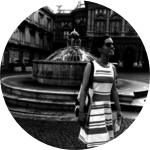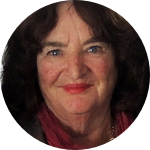About This Project
Digitization is having a negative effect on the amount of time spent reading. Our hypothesis is that Virtual Reality can make reading more appealing, so we are developing a VR environment for reading "Alice's Adventures in Wonderland". VR allows us to collect quantitative and qualitative data about the interaction with the text, enabling a comparison of differences in reading in Europe and South Korea. The outcome will be an innovative VR experience and evidence based results on reading.
Ask the Scientists
Join The DiscussionWhat is the context of this research?
There is a lively debate on the impact of technology on reading habits (Baron 2015; Carr 2014; Wolf 2007). To face this issue, we need to consider that many people are not attracted by printed books. We need to understand what kind of readers they can be and design paths that can bring them to the experience of reading. VR can suggest new ways of looking at narrative, since interpretation can be aided by accessing stories in a form that is utterly distinct from their previous iterations (Latour and Lowe 2011).
Engaging South Korean and European readers, the project will offer a new comparative perspective on the opportunities and drawbacks of an inevitable phenomenon that is of global interest, the impact of digital technology on reading literature.
What is the significance of this project?
Experimental studies of reading are quite invasive and can disturb the immersive and aesthetic experience (Riese et al. 2014). On the contrary, in VR the head-mounted display is the medium through which the reader has access to the narrative and it’s thus perceived as part of the experience of reading. Along this line, Virtual Reality brings a twofold advantage:
1. it allows to collect quantitative and qualitative data about the readers’ interaction with the text in a more natural way, since it can be done by a software via remote connection, without requiring an experimental setting;
2. it can offer a richer narrative experience, since the text can be integrated with the desired environment and visual effects.
What are the goals of the project?
The primary goal is to empirically study the readers’ experience in a Virtual Reality environment specifically designed for reading literature, and bring evidence of cultural differences in reading.
The text will be organized in a 3D space and will be enhanced by additional content (notes, illustrations, etc.). So, we will use eye-tracking to record fixation patterns on words, sentences and paragraphs, but we will also analyze the readers' patterns of interaction between text and additional content.
The development will start in January 2018 and the VR will be ready in March. We will l then have a beta testing with students in the Netherlands, a workshop in Milan to set up the experimental phase, which will start in April in 6 different universities in Europe and South Korea.
Budget
We identified a young Korean creative developer to be the perfect partner for the development of the VR environment, since he has the right experience and passion for artistic and cultural projects. The budget requested will cover his 3 months work to complete the development of the pilot VR version of Chapters 1-2 of the novel "Alice's Adventures in Wonderland".
The design phase has been supported by the University of Milan-Bicocca and Sogang University.
The beta testing and the experimental phase is co-financed by other institutes in Italy, the Netherlands, Switzerland, Germany and UK. We also partnered with a Canadian/American company, who is providing the software for VR analytics.
Endorsed by
 Project Timeline
Project Timeline
By the end of 2017 we will finalize the design of the VR environment.
In January 2018 we will start developing in Unity, aiming at a product that will be compatible with the most used platforms and devices.
In March we'll start the beta testing with students.
In April we'll host a workshop with researchers from 8 different universities, who will later carry on experiments with readers from different nationalities. At this time the VR experience will be publicly released.
Dec 12, 2017
Project Launched
Mar 05, 2018
VR beta version of "Alice's Adventures in Wonderland" (ch. 1-2) is ready
Mar 30, 2018
beta testing completed
Apr 05, 2018
workshop in Milan to present the VR environment
Apr 20, 2018
VR version of "Alice's Adventures in Wonderland" is released to the public
Meet the Team
Affiliates
Affiliates
Team Bio
We are a team of passionate readers who want to innovate the way we experience literature. Check some related projects here.
We are also collaborating with colleagues interested in the empirical study of literature, who have skills that will help us achieve our goals of studying reading in VR.
Federico Pianzola
I am a Research Fellow at the University of Milan-Bicocca, Department of Human Sciences for Education (Italy), and Sogang University, School of Integrated Knowledge (Seoul, South Korea).
I received an international PhD in Italian Literature (University of Florence, University of Cambridge), with a dissertation on aspects of myth in Primo Levi’s fictional short stories. More recently I started working on digital literary studies, focusing on online social reading and on the use of VR.
I am also editor-in-chief of Enthymema, an international academic journal of theory, critics and philosophy of literature.
Wayne de Fremery
Wayne has an undergraduate degree in economics from Whitman College, a master's degree in Korean Studies from Seoul National University, and a doctorate in Korean literature from the Department of East Asian Languages and Civilizations at Harvard University. Currently associate professor and chair of the Department of Global Korean Studies at Sogang University, Wayne is the author of a growing number of books and articles about bibliography and the socialization of twentieth-century Korean literary texts. His current book project is titled "Computational Bibliography and the Sociology of Data." He is also at work on a manuscript titled "How Poetry Mattered in 1920s Korea."
Books designed or typeset by Wayne have appeared from the Korea Institute at Harvard, the University of Washington Press, and Wayne’s award-winning small press, Tamal Vista Publications.
Wayne is at work on several digital projects with collaborators at UC Berkeley (US), University of Nottingham (UK), the National Center for Supercomputing Applications (US), Microsoft (South Korea), and Google (US).
Wayne is a founding board member of the Cambridge Institute for the Study of Korea, where he is Director of the Korea Text Initiative. His artwork has appeared at a number conferences and exhibitions, including HCI Korea 2014 and DAW BioArt Seoul 2015.
Lab Notes
Nothing posted yet.
Additional Information
By the end of 2017 we will finalize the design of the VR environment, regarding the visual aspect, the user interaction, and the additional content that will enrich the environment.
In January 2018 we will start developing in Unity, aiming at a product that will be compatible with the most used platforms and devices (HTC Vive, Oculus Rift, PlayStation VR, Google Daydream view, Samsung Gear VR). The pilot that will be realized will include chapters 1 and 2 of "Alice's Adventures in Wonderland". If the results of the experiment are satisfactory, we will proceed to create the additional content for all other chapters.
In March we'll start the beta testing with students of a New Media Design course, who will have the opportunity to collect data with the VR environment and derive recommendations for further improvement based on their data analysis.
In April we'll host a workshop with researchers from 8 different universities in Europe and South Korea. They are experts in empirical study of reading and will later carry on experiments with readers from different nationalities. At this time the VR experience will be publicly released and downloadable by everyone.
In September we will present the first results.
Project Backers
- 3Backers
- 2%Funded
- $104Total Donations
- $34.67Average Donation




